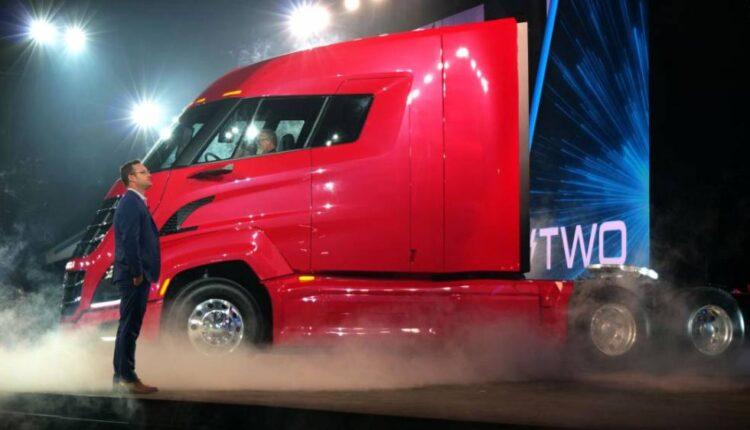Washington, DC (CNN)Nevada businessman Glen Pilz was excited to be buying a business in 2006 from Trevor Milton. Milton seemed like a good guy, Pilz said. He recalled Milton telling him how he was paying for someone’s education in Brazil.
But soon, the business became a “disaster,” as Pilz recalled to CNN Business. He said he’s speaking out now to protect others from a similar fate. “I’m not going to sit there and whine and say Trevor ruined my life. Did he ruin a section of my life? Yeah,” Pilz said. “But did I have my family through all that? Yeah. Did it suck, did it hurt, was I mad? Yeah.”
“The books were not what they said they were,” Pilz added.Looking back on the deal today, Pilz wishes he’d bought a different company. Pilz said he faced two home foreclosures after the business didn’t live up to projected financial returns. CNN Business verified the foreclosures through public records. Read MorePilz said he lost the $300,000 down payment he invested after buying a company from the man later known for founding, and then resigning from, Nikola Motors, the electric truck manufacturer.
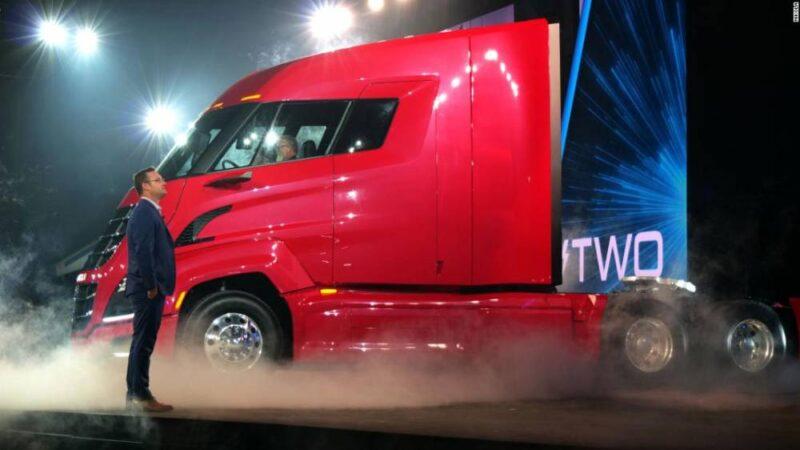
Former Nikola executive chairman Trevor Milton stands next to a truck at Nikola World 2019.Pilz said he took every dollar from his 401k and savings account to buy St. George Security and Alarms, an alarm system dealership, in St. George, Utah.Milton was 22 years old when he registered the company in 2004, according to Utah public records. It would be the first of five businesses that would launch his journey from high school dropout to a billionaire founder, who resigned in September amid controversy and allegations of wrongdoing, including sexual assault, which he denies.Years after selling St. George Security and Alarms to Pilz, Milton founded Nikola, an electric truck company that he claimed would transform transportation with electric and hydrogen fuel cell trucks. The company went public in June and rode the recent wave of hype around electric vehicles. It’s entered into deals worth $2.5 billion, including with major companies like GM and Bosch, and been compared to Tesla in news reports. Milton has called Nikola one of the most innovative companies in the world and compared himself favorably to Tesla CEO Elon Musk. The company was briefly valued more than Ford, despite the fact that it has yet to sell a working truck.GM said last week that its deal with Nikola hasn’t yet closed, just weeks after announcing a $2 billion investment and plans to build a pick-up truck with Nikola. Milton’s business dealings have been in the spotlight since he resigned from his position as Nikola chairman on Sept. 21, following a report alleging a pattern of misdeeds, including presenting a product as being closer to reaching the market than it was. Milton called the report a “hit job” and said it was “lies.”CNN Business spoke with six people who said they either invested in or did business with Milton before Nikola made him a billionaire. These individuals’ investments, collectively totaling more than $455,000 span four years and four companies. They said Milton was a skilled salesman, but they soon found him hard to trust given a tendency to exaggerate and not follow through on promises. Some had questions about his character and integrity.
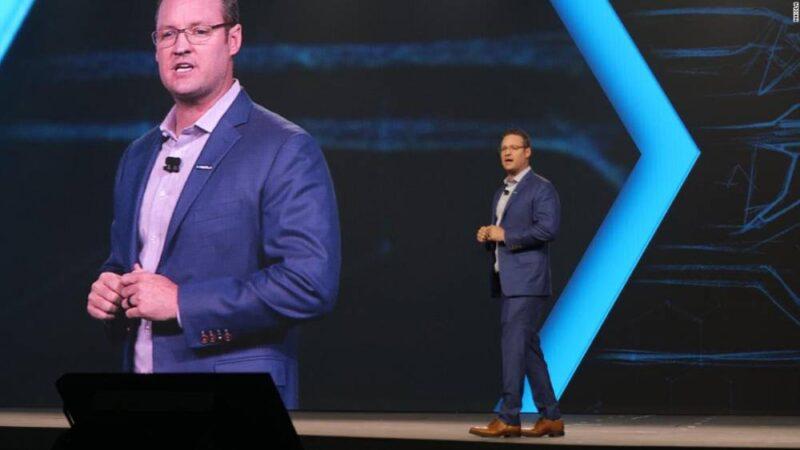
Former Nikola executive chairman Trevor Milton speaks at Nikola World 2019.Two people said they invested tens of thousands of dollars, but claim they never received the stock certificates they were owed to formalize their investment. One investor said they’ve already filed a complaint with a regulatory body, and another said they’re in the process of doing so. Milton, through a spokesman, declined to comment for this story on the allegations the investors and those who did business with him have made. Nikola also declined to comment.Pilz, who purchased a company outright from Milton rather than investing in a startup, claimed Milton misrepresented revenue and expense information prior to the sale. Pilz as well as other investors in Milton’s companies alleged that Milton’s treatment of them transformed once a deal was closed. The investors agreed to speak on the condition of not being identified given their concerns about retribution from Milton, such as legal action.After finalizing the deal, Pilz recalled Milton telling him to call if he needed anything. But shortly after, problems emerged, Pilz said. Installation equipment that was included in the contract, like ladders, didn’t exist, he claimed. When he took a closer look at the books, more issues arose. Pilz claimed that accounts receivable, essentially future sales, which were supposed to be guaranteed, turned out to be estimates provided to customers or sales that had already been paid. In at least three months, Pilz said he had to foot the bill for $10,000 in chargebacks, as customers exited deals that had been agreed to when Milton owned the business.There were also odd expenses that Milton had not disclosed, Pilz said. For example, Pilz claims he was expected to pay one employee’s rent. Pilz said he didn’t want to lose the employee, so agreed to follow through on what he said was an agreement the employee had with Milton. Pilz said that some employees didn’t have relevant licenses, and Pilz paid for them to get those licenses.”You kept running into more and more things,” Pilz said. “If it was just one of them, it’s not a big deal but when happening, you’re like, ‘Man this is a disaster.’ ” Pilz said that Milton was so hard to get ahold of, that he stopped trying to call for help. In 2008, Pilz said he gave the business back to Milton, exercising a right in their contract. Pilz said he wasn’t required to make additional payments that he owed Milton.In 2008, a Utah inventor of a hybrid fuel system that blended diesel and natural gas in trucks advertised his product to consumers. In 2009, the inventor was approached by Milton, and they agreed to work together, according to a document viewed by CNN Business. In a meeting in late November 2009, Milton had illustrations made of a newer hybrid fuel system from the inventor for a patent application, according to a person with knowledge of the meeting. Milton incorporated dHybrid, a company that developed and designed hybrid fuel systems, on Nov. 25, 2009, according to Nevada public records. The day before, he’d issued himself a million shares in dHybrid, according to a copy of a stock certificate viewed by CNN Business. It was Milton, not the inventor himself, who was listed as the inventor on the provisional patent application filed after the meeting, according to a document viewed by CNN Business. The inventor was later listed on a 2010 application.
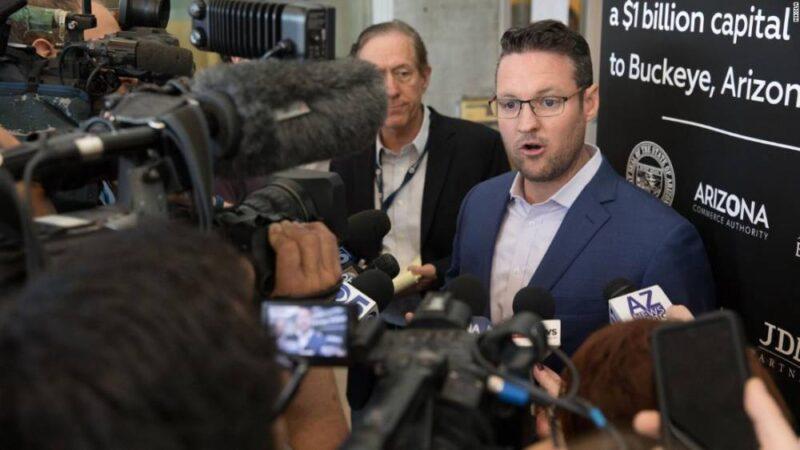
Former Nikola executive chairman Trevor Milton speaks to members of the press at an event in Arizona in 2018.In October 2012, Milton’s father Bill organized a new business with a similar name and goals to dHybrid, calling it dHybrid Systems LLC, a company that develops, installs and sells fuel systems, according to public records viewed by CNN Business. Trevor Milton has described himself as dHybrid Systems CEO and founder on his LinkedIn page.The Utah inventor was never involved in the new company, according to two people with knowledge of the situation. The Utah inventor was also not listed on six patents that dHybrid Systems applied for between 2013 and 2016, according to patent applications filed with the US Patent and Trademark Office. Milton was listed as an inventor on all of the patent applications, along with colleagues.Milton, who has said he dropped out of high school and college, lacked engineering expertise, according to two former dHybrid Systems employees, whom agreed to speak to CNN Business on the condition of not being named out of concern for facing litigation from Milton. The former employees said that Milton would ask them to install the fuel systems on the trucks in ways they believed was not safe or structurally sound. They said they objected to drilling holes in the trucks’ frame closer than rules allowed, or routing a trucks’ gas line so close to an exhaust pipe that it could create heat risks. They felt his requests weren’t the result of trying to do something wrong, but lacking the knowledge to know better. “What he was suggesting was asinine to the most basic diesel tech,” one of the employees said. In October 2014, dHybrid Systems was acquired by an Ohio company, Worthington Industries. Following the sale, a dHybrid investor told CNN Business that they were excited about the sale, and called up Milton to congratulate him and ask how much their shares were now worth. The investor did not know that dHybrid and dHybrid Systems were two different companies.The person alleged that on that call Milton told him that he actually had invested in Lexon Industries, a different company also owned by Milton, which Milton claimed had nothing to do with dHybrid Systems. Because of this, Milton allegedly told the investor that he was owed no money from the dHybrid Systems sale, which was registered as a separate company. The investor said no red flags were raised during the initial investment process because people they trusted had referred them to Milton, and their guard was down. The investor said it was their first business investment and they wish they’d done more due diligence.
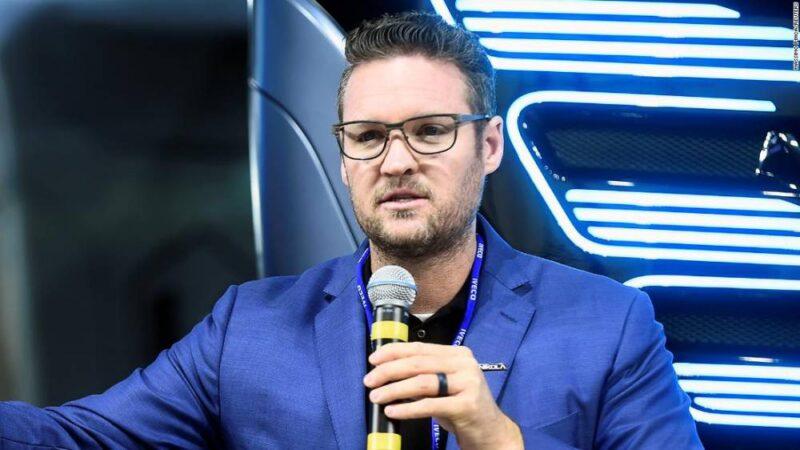
Former Nikola executive chairman Trevor Milton attends a news conference in December 2019.The investor’s conversation with Milton regarding the dHybrid Systems sale added to years of frustration with getting proof of their shares, the person said. CNN Business also viewed an online exchange from 2013 in which the person asked Milton about when they would receive the stock certificates in dHybrid, and Milton said he was working it out. Another person described to CNN Business that they invested $40,000 in Milton’s companies in 2010, including dHybrid and Upillar, a classifieds website that had launched in 2009. The investor said that Milton told them at the time that the website had nearly as many hits as Craigslist and would soon be close to Amazon in hits. The investor said they didn’t feel they had a reason to doubt Milton’s claim, and they weren’t familiar with website traffic or know how to find such data. The investor said they hadn’t invested in a business before but trusted the people that referred them to Milton. Looking back, the investor said they hadn’t done enough due diligence.The investor said they never received the stock certificates Milton agreed to grant them and got the runaround when asking for them. They’d never received any money back from Milton, the investor said, and that it’s been vindicating to watch Milton’s negative turn in the spotlight. “You do people dirty for so long and it’s going to catch up to you,” the investor said. Bill Hansen, who said he invested $100,000 in Milton’s alarm system company before Pilz bought it, described Milton as a phenomenal salesman who told people what they wanted to hear.
Hansen said that soon after he invested, he realized Milton’s plans for expanding the business with a summer door knocking program weren’t going to succeed. Hansen said he left the deal, and got back from Milton about as much money as he put in.”He’ll tell you whatever sounds good enough to get you in the door,” Hansen said. “Nikola is where it is because of him. How do you discount that? Was it all true? Probably not, but are all sales stories true? The 100% truth isn’t that great a story.”
Source: edition.cnn.com

